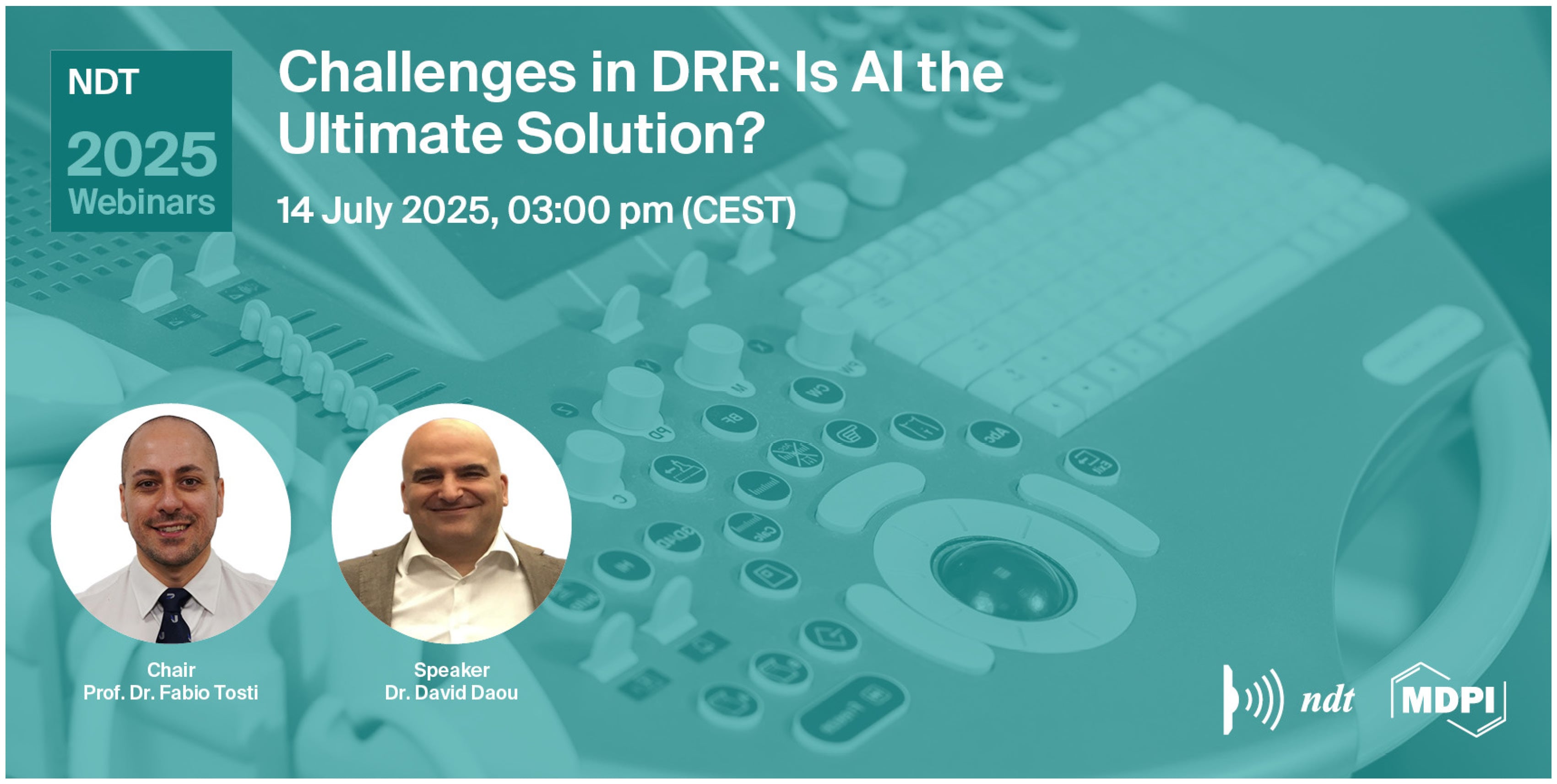
NDT Webinar | Challenges in DRR: Is AI the Ultimate Solution?, 14 July 2025
Artificial intelligence (AI) and remote sensing (RS) offer transformative potential for disaster risk reduction (DRR), yet their implementation faces significant hurdles. Key challenges include the scarcity of high-quality labeled datasets for training AI models, particularly for infrequent but high-impact disasters. Remote sensing data, while valuable, often suffers from inconsistencies due to cloud cover, sensor limitations, or low temporal resolution, which can affect real-time monitoring and emergency response.
In this webinar, Dr. David Daou will reflect on a central question: Is AI the ultimate solution for DRR? His presentation will explore the limitations of AI-driven predictive models, including issues with generalizability across diverse geographic and climatic conditions and the computational bottlenecks that can delay decision-making during fast-evolving disaster scenarios.
In such scenarios, further challenges include the technical complexity of integrating multi-modal RS data—such as thermal, radar, and hyperspectral imagery—requiring advanced data-fusion techniques. Ethical and governance concerns, including algorithmic bias and data privacy, also pose serious considerations, while the lack of technical infrastructure and expertise in many high-risk regions also limits the effective deployment of these advanced tools.
This session will highlight the need for collaborative efforts focused on enhancing data accessibility, developing adaptive AI systems, and strengthening local capacities—key steps toward bridging the gap between innovation and practical disaster resilience.
Date: 14 July 2025
Time: 9:00 a.m. EDT | 3:00 p.m. CEST | 9:00 p.m. CST Asia
Webinar ID: 824 7503 5782
Register now for free!
Program:|
Speaker |
Presentation Title |
Time in CEST |
Time in EDT |
|
Prof. Dr. Fabio Tosti |
Chair Introduction |
3:00–3:10 p.m. |
9:00–9:10 a.m. |
|
Dr. David Daou |
Challenges in DRR: Is AI the Ultimate Solution? |
3:10–3:40 p.m. |
9:10–9:40 a.m. |
|
|
Q&A Session |
3:40–3:55 p.m. |
9:40–9:55 a.m. |
|
Prof. Dr. Fabio Tosti |
Closing of Webinar |
3:55–4:00 p.m. |
9:55–10:00 a.m. |
After registering, you will receive a confirmation email with information on how to join the webinar. Registrations with academic institutional email addresses will be prioritized.
Unable to attend? Please register anyway, the session will be recorded, and we will let you know when the recording is available for viewing.
Webinar Chair and Speakers:
- Prof. Dr. Fabio Tosti, 1 School of Computing and Engineering, University of West London, London, UK; 2 The Faringdon Research Centre for Non-Destructive Testing and Remote Sensing, University of West London, London, UK;
- Dr. David Daou, Institute for Environment and Human Security, United Nations University, Bonn, Germany.
For more information about this webinar, please visit the following link: https://sciforum.net/event/NDT-6.
If you have any questions about this webinar, please contact ndt@mdpi.com.
NDT Webinar Secretariat
